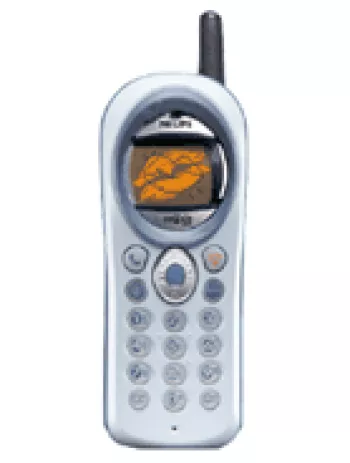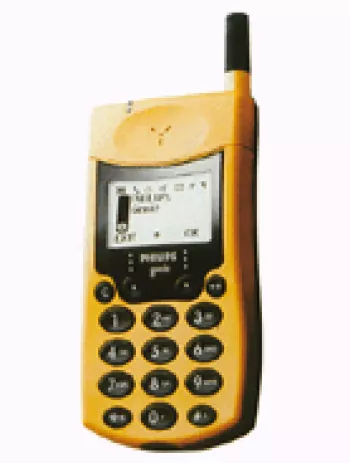
Overview of Philips X623
The Philips X623 is a feature phone that was announced and released in December 2011. Although it might not stand out in today's smartphone market, it was packed with certain characteristics that made it unique and practical at its time. Designed for basic functionality, this dual SIM device boasts long battery life, a moderate camera, and user-friendly features aimed at offering a reliable communication tool alongside some entertainment options.
Design and Build
The Philips X623 features a compact and robust design. With dimensions of 118.5 x 49 x 15.2 mm and a weight of 132.8 grams, it was engineered to be durable and easy to handle. The use of a Mini-SIM slot allowed users the convenience of carrying two numbers in one phone, especially useful for those managing work and personal calls. The color options of Black and Silver added a touch of elegance to its simplistic design, appealing to a wide range of users.
Display
The device is equipped with a 2.4-inch IPS LCD screen displaying up to 256K colors. While this might seem modest by today’s standards, at the time of its release, it provided a bright and clear display for a variety of tasks. With a screen resolution of 240 x 320 pixels and a ~167 ppi density, the display ensured that all text and images were rendered with decent sharpness and clarity, suitable for its intended uses.
Performance and Storage
Powering the Philips X623 is a basic processor sufficient for handling everyday phone tasks such as calls, messaging, and light multimedia usage. The phone comes with 64MB of internal storage, which was typical for feature phones of that era, providing space for essential files and some multimedia content. The microSDHC card slot allowed users to expand the storage, accommodating their needs for more space for photos, music, and other media.
Camera Features
The Philips X623 comes with a 5MP main camera, complemented by an LED flash, enabling users to capture satisfactory pictures under various lighting conditions. While it does not offer the advanced capabilities present in modern smartphones, it provided a decent means for capturing memories at the time. The camera supports video recording at QCIF quality, which was enough for basic video recording requirements.
Battery Life
One of the standout features of the Philips X623 is its impressive battery life. Equipped with a removable Li-Ion 2000 mAh battery, the phone offered up to 23 hours of talk time and an extensive standby time of up to 1200 hours. This long battery life was a significant selling point, particularly appealing to users who needed a phone that could go the distance without frequent charging.
Connectivity and Communication
The Philips X623 supported GSM technology with 2G bands covering GSM 850 / 900 / 1800 / 1900 for SIM 1. It included GPRS Class 12 and EDGE for basic mobile browsing capabilities. While it lacked advanced connectivity options like Wi-Fi, it offered Bluetooth 2.1 with A2DP for wireless connectivity and file transfers. The phone also included an FM radio with RDS, a popular feature for users who enjoyed listening to radio on the go.
Multimedia and Entertainment
For entertainment, the Philips X623 came with a 3.5mm audio jack and a loudspeaker, allowing users to enjoy music and radio broadcasts. It also supported Java MIDP 2.0, enabling users to play Java-based games and applications, extending its utility beyond just communication. The phone also supported SMS (threaded view), MMS, and Email, offering a range of messaging options to stay connected with others.
Conclusion
The Philips X623 stands out as a resilient and practical feature phone, embodying the era before smartphones dominated the market. Its durability, long battery life, and basic multimedia capabilities made it a favorite for those seeking a straightforward mobile phone experience. Even though it has been discontinued, the X623 remains a testament to the functional and reliable design principles that once characterized the mobile phone industry.
Key Features of Philips X623
- Dual SIM (Mini-SIM) capability for easy management of two phone numbers.
- IPS LCD display with 256K colors for vibrant visuals.
- Expandable memory with a microSDHC card slot.
- 5 MP main camera with LED flash for quality photos.
- Bluetooth 2.1 with A2DP support for wireless connectivity.
- FM radio with RDS for entertainment on the go.
- Long-lasting removable Li-Ion 2000 mAh battery, offering up to 1200 hours of standby time and up to 23 hours of talk time.
- Compact and lightweight design with a choice of Black or Silver colors.
Philips X623 Key Disadvantages
- Discontinued model, support and parts may be hard to find.
- Lacks modern network technology; only supports GSM.
- Small screen size with a 30.7% screen-to-body ratio.
- Low internal storage capacity of 64MB.
- No selfie camera available.
- No WLAN support; limited connectivity options.
- No GPS functionality.
- Limited video recording capability (QCIF resolution).
- No advanced sensors included.


View Also
More Phones
All Rights Reserved +14266 Phones © Mobilawy 2025

























